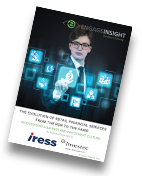So the story goes the financial adviser decides to visit one of his firms top clients to explain the move to fee based services. This client has invested considerably over the years and is seen as a sociable friend by the adviser.
The meeting starts as normal and then the issue surrounding the new fee charging level is discussed, “the new fee levels are paid by you and are to be taken from the products (like before)”. Silence is followed by a sharp intake of breath by the client and then a tirade of questions asking what the adviser has actually done over the years to justify such levels of income from his investments. The outcome: a broken relationship.
The past 6 months have been friendly to the new RDR advice market with buoyant markets making client meetings relatively comfortable in discussing service value. Yet what happens when the next black swan comes swimming and the clients begin to question the value for money issue?
This happened in Australia in the early 00’s when I was consulting with a large fee based wealth manager. The move to fees and lifestyle financial planning had been made relatively seamlessly and financial plans were being sold like hot-cakes. Yet when markets slipped and clients became aware of the cost of advice, tensions soon appeared in client meetings and persistency rates dropped dramatically. This along with the emergence of the D2C platform market meant advisers were severely challenged.
What is clear is that there are many UK adviser firms who have taken the time to address key strategic issues such as client service propositions and business models along with the mandatory qualifications. This is great and the hard work taken is to be commended. But what now needs to happen is a re-calibration of those skill sets that are often taken for granted and are seen as relatively intangible: the soft skills.
Slowly but surely we are now seeing an increased presence of life planning skill workshops appear on these shores. A training focus on communication techniques, listening skills and behavioural tools are now in vogue with the usual American imports Bill Bachrach, George Kinder and Maria Nemeth and off course our very own home grown CPD accredited Better Client Relationships programme.
The issue that advisers now face is one of context. The lessons behavioural economics give us is that saliency drives decision making and behaviour, thus it is what clients experience in their meetings, interaction with the adviser firm and discussions with significant others that will determine their perceptions for value. It’s the client experience that counts. What advisers need is to map out how best to hone the right behaviours to ensure loyal and trusting relationships. So how can this be done?
Building relationship capital:
A focus on the impact they have on client decision making by understanding their own relationship building skills such as questioning techniques and active listening to match client-thinking style means client informed consent. A move from providing solutions to problems to finding opportunities early in the advice process also ensures high client engagement, deals with objections and generates trust.
Segment by relationships:
By introducing a structure for segmenting services by the desired client relationship – not just finances (such as contingent, social, expert, strategic and partnership relationships) provides a clear structure for engagement and a focus on determining high affinity with client needs.
Articulate professional services:
With the FCA focus on corporate governance and management information, a professional culture can be show-cased to clients to highlight the real add value they are receiving for fees paid. One example we can focus on here is the development of a ‘value hub’, gelling the front and back office together with a middle office that provides a clear investment committee and/or wealth management process. Also including a well structured financial planning programme along with all the research tools and cash-flow modelling and paraplanning/ administration support will give clients confidence that they’re getting value for their money.
Demonstrate diversified charging:
Time is money they say, well now advisers need to show the value in clients spending time with them. By ensuring they have the right behavioural skills to match client needs, advisers will be able to emanate their worth and charge clients directly. (E.g. Time, task or retainer based). This will also hedge against the aforementioned perfect storm where market volatility will affect client confidence in fees and thus the right mix of direct charging and ad valorem for example will provide fee income assurance.
Overall financial professionals are well placed to begin to hone their relational skills to ensure clients continue to pay their fees. A focus on longtermism and a drive for high client relationship capital will place client needs at the centre of the service and any un-vocalised unease with fees will be identified and dealt with early on. This means that our adviser friend would not have taken the value of fee charging for granted and avoided the devastating results.













